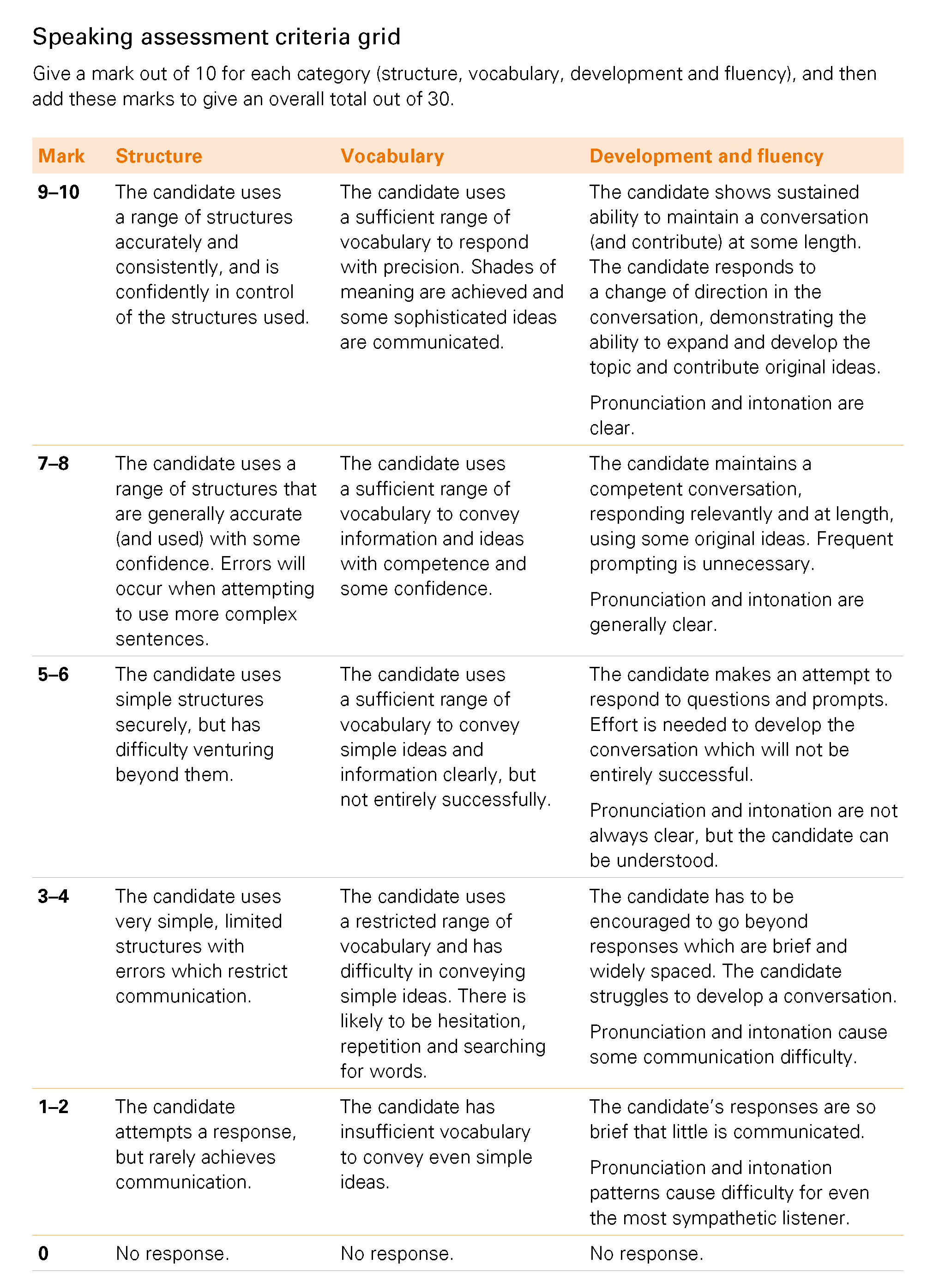Sorry, this activity is currently hidden
Section outline
-
Cambridge IGCSE™/ IGCSE (9–1) English as a Second Language 0510/0511 / 0991/0993 (for examination from 2019)Example Candidate Responses (Component 05 - Speaking)
-

Now that you have read the Speaking Assessment Criteria Grid, you may want to practise marking a speaking test. Listen to the candidate responses below, make a note of the strengths and weaknesses of the candidate and give a mark, before you read the moderator comments and marks.
Please note: Information about the candidate and centre has been removed from the start of the recording to protect the identity of the candidate, however it is very important to include this information when submitting audios for moderation.

Part A: (Explanation of the test) The examiner reads the script from the Teacher’s/Examiner’s Notes to the candidate.
Part B: (Warm up) Adequate time is given (2’05”). Having introduced the idea of working while you study, the candidate does not show a particular interest in this topic, so it is not necessarily the correct choice for the candidate. The aim of the warm up is to seek out a productive topic for discussion by focusing on candidates' interests, hobbies, and life outside school. The examiner asks about the candidate’s life outside school, but does not use this information to select a suitable speaking assessment card.
Part C: (Preparation time) Adequate time is given (2’20”). The speaking assessment card is not announced.
Part D: (Assessed discussion) Adequate time is given (6’47”) and all prompts are used. The examiner invites the candidate to start and the candidate then works her way through prompt 1 without intervention by the examiner. The examiner suggests some jobs for prompt 2: babysitting, taking care of pets, working in a university library, but doesn't really listen to the candidate’s response.
The candidate uses a range of structures accurately and consistently, and is generally in control of the structures used. There are a few minor slips. “So many people have a job while studying at school or university.”, “I think the kinds of jobs that students could do could range between, like, a cashier, or could be volunteering; not sure that counts though.” , “…it’s not like going out in the real world.”, “…wouldn’t know how to deal with it.” In response to prompt 4 – “Time, absolutely first thing, a lot of people struggle with time, not only do they get so much homework and studying in tests and stuff …”. The candidate could achieve full marks by using a wider range of verb tenses and linking devices.
Mark awarded = 9 out of 10
The candidate uses a sufficient range of vocabulary to respond with precision. Shades of meaning are achieved and some sophisticated ideas are communicated. Examples of vocabulary used are: ‘clashing activities’, ‘chaotic’,’ mentally drain and exhaust them’,’ be exposed to all kinds of inappropriate stuff, ‘dropping out’, ’carefree’’. The candidate could achieve full marks by building on her wide range of vocabulary and finding synonyms for ‘stuff’.
Mark awarded = 9 out of 9
Development and fluency:
The candidate shows sustained ability to maintain a conversation (and contribute) at some length. The candidate responded well to a change in direction by the examiner after prompt 2 and prompt 3, demonstrating the ability to expand and develop the topic and contribute original ideas. Her pronunciation and intonation are clear but there is slight hesitation in her response.
Mark awarded = 9 out of 10